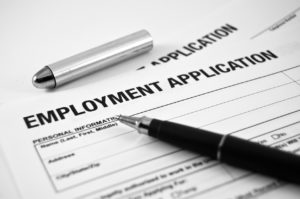
Vicarious liability is a legal theory that holds a third party liable for your injuries, even if they were not directly involved in the incident that caused your injury. In some personal injury cases, there could be more than one party liable for your damages.
Under the theory of vicarious liability, a party acting in a supervisory position of the person who caused your injury could also be liable for damages. For example, an employer may be found vicariously liable for injuries caused by an employee.
If another party causes your injury, that party could be liable for your damages. Damages include your economic damages, such as lost wages, medical bills, and other out-of-pocket expenses. It also includes your non-economic damages, or the pain and suffering caused by the accident and injury.
In many cases, the liability insurance carrier handles the claim and pays the damages. However, before you can recover any money for your claim, you must prove that the other party caused your injury.

Employers may be held vicariously liable for the actions of an employee. The doctrine “Respondeat Superior” holds an employer responsible if an employee injures someone. For the employer to be liable, the employee must have been acting within the scope of employment.
For example, an employer may not be held financially liable for actions that an employee takes during their off time. If the employee is in a traffic accident, the employer would not be liable for injuries or property damage.
However, if an employee causes a car crash while running errands for the employer, the employer is vicariously liable for any damages caused by a car crash. Even though the employee was driving his car, he was acting within the scope of employment at the time of the car accident.
Examples of personal liability cases that could involve vicarious liability include:
As an employer, you can protect your business by purchasing professional liability insurance to cover claims of vicarious liability. If you are responsible when an employee acts negligently, your insurance coverage pays the claim instead of your business.
In most cases, employers are not liable for the actions of independent contractors. However, there are exceptions.
An employer could be vicariously liable for damages caused by an independent contractor if:
Employers are not automatically liable under vicarious liability for independent contractors. The court considers all circumstances related to the incident. The question of vicarious liability regarding independent contractors is incredibly complex and must be reviewed on a case-by-case basis.
You have the burden of proving the legal elements for a vicarious liability injury claim. In most cases, you must prove:
An employer may argue that the employee was not acting within the scope of employment when they injured you. In addition, there could be other defenses that the employer might raise depending on the facts of the case.
If you were partially to blame for the cause of your injury, the employer could raise issues of comparative negligence. Under Massachusetts laws, your compensation for damages may be reduced or eliminated based on your percentage of fault.
If the court finds that an employer is vicariously liable for damages caused by an employee, the employer could be responsible for the victim’s:
The value of your economic and non-economic damages depends on your injuries and the facts of the case. Careful documentation of damages helps you recover the maximum amount available for your personal injury claim.
The party who caused your injury needs to be held accountable for their actions. Our legal team explores all legal causes of action, including vicarious liability, to recover maximum compensation for your damages.
Contact our law office to schedule a free consultation to discuss your case with a Boston personal injury attorney. We want to help you get the money you deserve after an accident or injury.